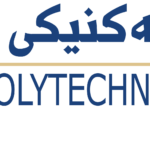- Aso Mohammed Aladdin
- aso.dei20@epu.edu.iq
- +9647725426616
- phd-dissertation-last-draft-Aso
-
The evolutionary sophistication method solves optimization problems; however, its effectiveness and scalability can be challenged as problem complexity increases. Population-based evolutionary metaheuristic algorithms heavily rely on operators that determine their overall performance. These operators enhance exploration and exploitation, crucial for effective search and optimization. The research introduces the crossover operator, Lagrangian Problem Crossover (LPX), to boost evolutionary algorithms' performance in tackling new optimization problems. Additionally, it presents Lagrange Elementary Optimization (LEO), a single-objective algorithm where LPX plays a significant role.
The crossover operator in population-based algorithms is crucial for selecting suitable solutions in optimization processes. Its efficiency saves time, minimizes errors, and reduces costs in engineering applications. The initial phase of the study presents an overview of the current crossover methods utilized in engineering operations and problem representation. Furthermore, presenting LPX, it is a fresh and inventive hybrid technique that draws inspiration from the principles of the Lagrangian Dual Function (LDF). Experimental evaluations compare LPX with other standards such as Simulated Binary Crossover (SBX), Blended Crossover (BX), and Qubit-Crossover (Qubit-X) in real-coded crossovers. The results indicate that LPX generally outperforms other methods and shows comparable performance in remaining cases. Specifically, in TF7, LPX demonstrates superior performance and shorter computation time across all three random values compared to Mean (α=0.2) at 0.0048, Standard Deviation (α=0.2) at 0.0031, and time computation (α=0.2) at 143.005 units. Statistical analysis validates the significance and reliability of LPX compared to other crossover standards.
In the second phase of the research, a novel evolutionary method named Leo is introduced. Leo is inspired by the accurate vaccination process that utilizes the human blood albumin quotient. Leo utilizes a self-adaptive approach, evolving intelligent agents through gene crossover based on fitness function values. The algorithm's accuracy and precision are extensively validated through rigorous testing on diverse benchmark functions, including both traditional and CECC06 2019 benchmarks. Leo's performance is benchmarked against well-known algorithms like Dragonfly, Genetic Algorithm, Practical Swarm Optimization, and others across multiple functions. A comprehensive comparison evaluates Leo's effectiveness and efficiency in solving optimization problems against these established algorithms. In optimizing multimodal test functions (TF8-TF13), particularly TF11, the proposed approach outperformed other algorithms, with an average TF11 value of (2.7393E-08). Notably, across the composite test functions (TF14-TF19), the proposed method exhibited consistently high performance compared to the base algorithms. The statistical analysis supports the research conclusions, and real-world applications of Leo are also showcased. The stability of Leo is confirmed using standard metrics for exploration and exploitation.
- Erbil Technical Engineering College
- Information Systems Engineering
- Information Systems Engineering


